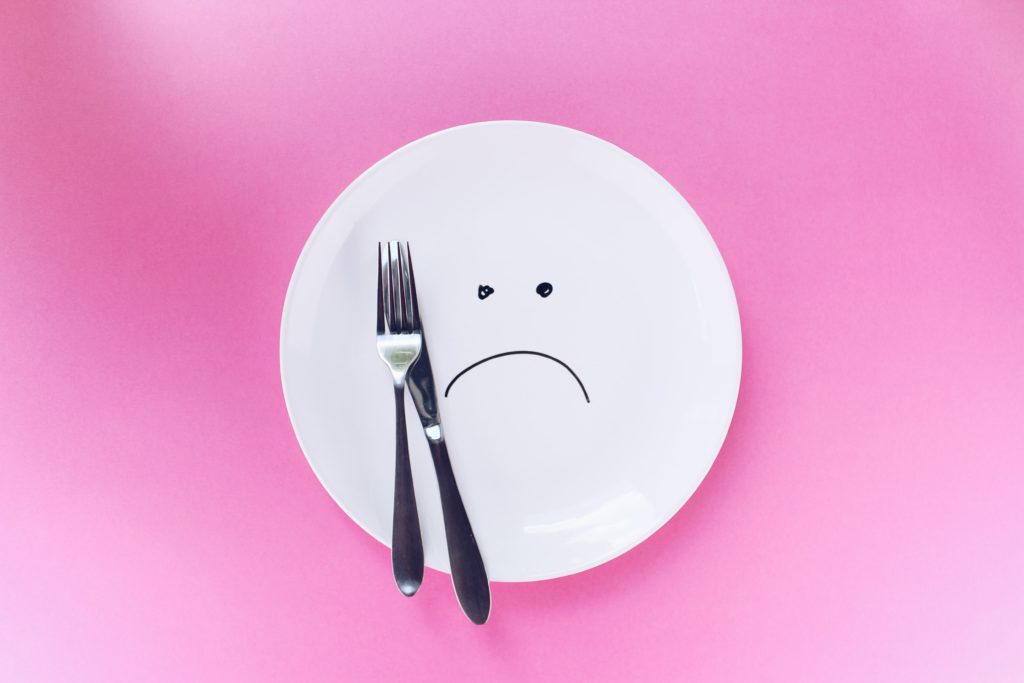6 Reasons People Struggle With Keto
- August 23, 2021
- No Responses

I used to start keto articles by asking if you’ve heard of the ketogenic diet, but by now I know that just about everyone has. The ketogenic diet has boomed in popularity over the last 5 years, peaking in google search trends in 2019 and slowly being searched less and less ever since. Why?
One of the big reasons is because for as many people as there are seeing success with keto, there are just as many not seeing the success they expected. This leads to more people quitting the diet and spreading the word that keto is not effective for weight loss or various other health benefits.
In this article I am going to break down 6 reasons why people struggle with the keto diet and what they can do to get on track doing this diet right and seeing the progress they had originally hoped for.
Reason #1: One-Size Fits All
What is one of the first things you see when you look up what a keto diet is? “Keto is 70% fat, 25% protein, 5% carbs”. This is seen in nearly every blog post trying to educate on the keto diet and has led many to think that this is the only way to do keto. That anything else puts you at risk of not achieving ketosis, fat loss, or the benefits of keto. This is absolutely not true.
The keto diet is a low carb diet that induces a state of ketosis. What this looks like for one person will be different from the next and will be dependent on things like diet history, pre-existing conditions, personal relationship with food, current body composition, goals, and more.
When it comes to nutrition, personalization is key. The keto diet is no exception. It is important for us to adjust our macros, food types, feeding and fasting windows, to align with our current health and where we want to take it. Failing to do so will result in slower results or a plateau.
Reason #2: Not Prioritizing Protein
Those general macronutrient ratios that I mentioned in the last section are a big reason why people make the mistake of eating too little protein on keto. To complement the generalized recommendation, there is also a misconception that too much protein will kick you out of ketosis due to gluconeogenesis, or the production of glucose from protein. While this process does exist, it is a “demand” driven process and not a “supply” driven process meaning that excess protein won’t necessarily turn on gluconeogenesis, unless there is a need for it.
All science aside, eating too little protein on a keto diet is a huge cause of many reported issues with the diet like lack of energy, loss of strength, hair loss, etc. Protein, especially protein from animals, is incredibly important to our overall health. Getting enough of it will make keto easier by reducing hunger and cravings and help you get more out of the diet by providing essential amino acids and other nutrients important to bodily function.
Reason #3: Adding a Ton of Fat
Another adjective you will almost always see used to describe keto is “high fat”. I think in the early years of keto this was a good thing. It allowed us to better spread the message that fat isn’t bad for you and that eating more of it shouldn’t be feared. Of course, we decided to take that and run with it eventually leading to everyone dousing their food (and beverages…I’m looking at you bulletproof coffee drinkers) in fatty oils, butter, and dressings.
While we shouldn’t fear fat, that doesn’t mean we should consume copious amounts of it. The traditional recommendation of eating 75% or more of your calories from fat on keto is not for everyone or every goal. If you are someone with a higher body fat percentage and your goal is to decrease it, lowering fat intake (and prioritizing protein like in the last section) would be a great strategy to do so.
In most cases, we can get enough fat naturally in fattier foods like meat, fish, nuts, avocados, etc. reducing our need to add as much fat.
Reason #4: Not Cutting Seed Oils
It’s great to eat more fat but it is important to focus on the quality of fat. Not all fats are created equal afterall. Fat from animal origin is incredibly nutrient dense and beneficially impacts our health in many ways. Fat from plants, especially seed and vegetable oils, are pro-inflammatory and may even contribute to insulin resistance. This is a big reason why so many people hit weight loss plateaus or do not experience all of the improvements in cardio-metabolic health from the keto diet.
Vegetable oils like canola, corn, soybean, safflower, and peanut oil are found in most packaged foods (even the one’s marketed as “healthy”) and used at most restaurants. The best way to avoid these foods is to check food labels and ask your restaurant server what your food is being cooked in. Check out this infographic I made for more on avoiding veggie oils.
Reason #5: Too Much Processed Keto Food
The increase in popularity of the keto diet has led to a boom in the food industry to create products for those looking to follow this way of eating. Fortunately, in some cases this has led to the creation of healthy resources to make this diet more accessible. Unfortunately, it has led to a lot of big (and little) food companies with little nutrition knowledge creating low net carb products chalked full of pro-inflammatory and even blood sugar spiking ingredients and marketing it as keto. As you can tell, this pisses me off a little.
Processed food is still processed food. In most cases, there is less nutrients in processed foods and a higher risk for health damaging ingredients. You may still lose weight eating a ton of these foods at the start of keto, but inevitably most people eating this way hit a weight loss stall and think that keto just isn’t for them. It’s not keto, it’s processed food.
Reason #6: Poor Lifestyle Habits
Keto is a diet and I do think that diet/nutrition is one of the biggest levers we can pull to improve our health. Plus what we put in our mouths is one of the few things we mostly have control over in life.
Being healthy isn’t just about nutrition though. Lifestyle habits also play a big role and can even impact the efficacy of whatever diet we are following. These habits include exercise, sleep, social, alcohol, and stress management habits. Although less frequently compared to the reasons listed earlier in this article, I do still see a lot of people who are doing everything else right with their diet but not seeing the progress they want. Lifestyle habits are usually the culprits and are the next thing for us to focus on once we have our diet right.
Wrap Up
The keto diet, when done the right way and when tailored to the individual, is a great diet for achieving numerous health goals, most notably weight loss. Keto is able to target both insulin resistance and inflammation, the two biggest contributors to our most common chronic diseases. Almost 90% of our population is NOT metabolically healthy. Keto can help these people. It just needs to be done the right way.

Chris Irvin is a nutrition researcher, writer, and educator. Chris specializes in low carb, keto, fasting, and carnivore dieting. Chris is the author of Keto Answers and the children’s book “Mommy Do I Have to Eat This?”. To see more of Chris’s work, visit his website theketologist.com or check him out on Instagram and Twitter @theketologist.



